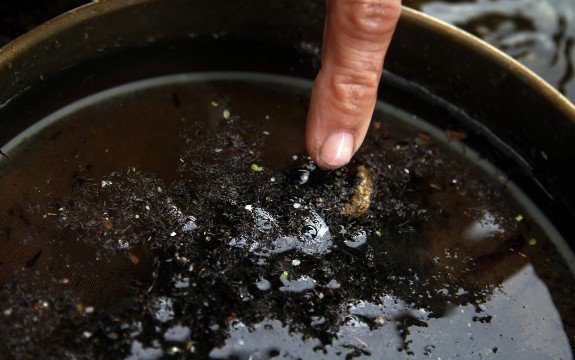Illinois First to Ban Pollution-Microbeads Found in Soaps


Sold in soaps and facial cleansers, microbeads are marketed as a way to exfoliate, to freshen the skin by sloughing away dead skin cells. Being made of plastic, these tiny plastic beads find their way into waterways and the ocean, resulting in an increase in water pollution. Both New York and California have proposed bills to ban these tiny pollution particles, but Illinois is the first to officially ban them.
Governor Pat Quinn recently signed the legislation that will phase out all sales of microbead products by 2019 and manufacturing of such products by 2018. As the first state to legislate the use of the small plastic beads, Illinois must have a good reason.
That reason: water pollution and the ecosystem that eventually leads to human consumption.
Banning microbeads will help ensure clean waters across Illinois and set an example for our nation to follow. Lake Michigan and the many rivers and lakes across our state are among our most important natural resources. We must do everything necessary to safeguard them.”
These small plastic beads find their way into the water supply as they are rinsed from bodies across the country. Once in the water, they become food to the wildlife.
They are about the same size as fish eggs, which means that, essentially, they look like food. To any organism that lives in the water, they are food. So our concern is that, essentially, they are making their way into the food web.
With unknown effects in the fish supply being carried over to human consumption, the concerns are very real.
Mason led a team investigating the impact of these beads on the water supply and ecosystem. They measured approximately 17,000 microbeads or microbead pieces per square kilometer in Lake Michigan. Lake Ontario registered 1.1 million per kilometer.
Though Illinois may be first, they aren’t alone. As mentioned, similar laws are being considered in New York and California.
There are other methods of exfoliation. A clean towel is friction enough to slough off dead skin cells. For those who want more of a scrub, natural solutions include cocoa, apricot kernels, and baking soda.
Consumers in Illinois and elsewhere who want to avoid microbeads are told to look for polypropylene and polyethylene on exfoliating product labels.

I read this article because I expected a list of skin cleansers that contain microbeads. How many people are actually going to look for “polypropylene and polyethylene on exfoliating product labels”?